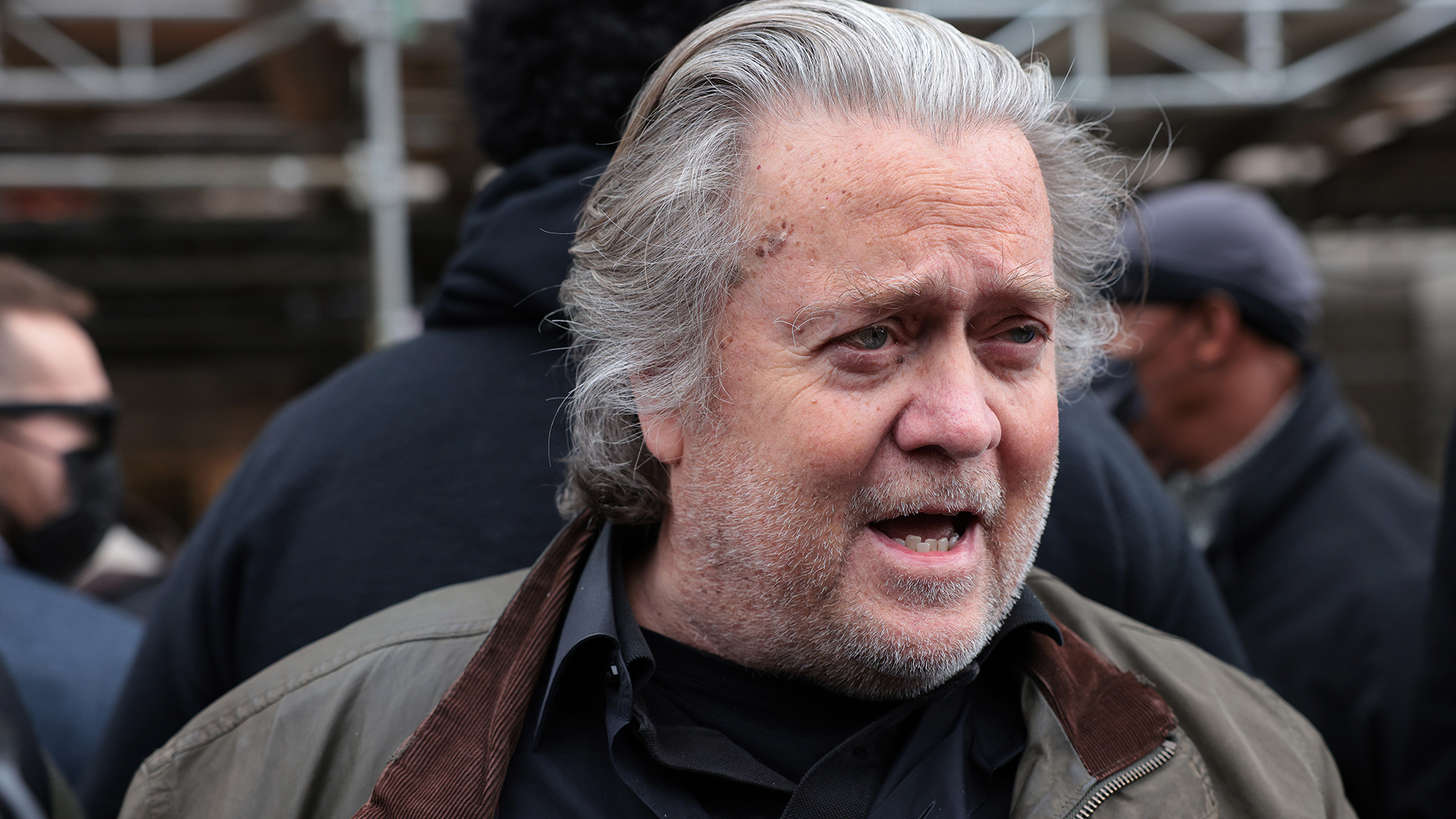OPINION: This article may contain commentary which reflects the author's opinion.
Federal prosecutors who have charged former advisor to Donald Trump, Steve Bannon, with contempt of Congress have gotten the scorn of the judge in the case after they made a stunning admission.
They admitted on Wednesday that they did not seek approval from higher ranking officials at the Justice Department before they spied on Bannon’s attorney and mistakenly spied on other Americans with the same name, Yahoo News reported.
That infuriated U.S. District Judge Carl Nichols who wanted to know why they thought it was proper or relevant to gather a long of the private phone calls, text messages and emails of defense attorney Robert Costello.
“What’s unique here is that the government didn’t just go get regular records,” he said. “Why is that an appropriate first move?”
The judge ordered the government to give him the requests for the phone records and the phone records themselves for his review, including information the Justice Department got from tech giants Comcast, Google, and Yahoo.
“The behavior of the FBI and, quite frankly, DOJ has been outrageous to my attorney and the attorney-client privilege,” the former Trump advisor said.
“Everything that was in the background of this, everything that went to the grand jury. Everything ought to come out,” he said. “The media ought to have—the American people ought to have—access to all the information about this. It’s in your interest, and it’s worth fighting for.”
The lead prosecutor in the case, Amanda Vaughn, stressed that “we never sought content of any communications.” She said that the government only sought “toll records,” on who the attorney was calling or writing to and when he did so.
“Costello is the intermediary here. It’s possible Costello never fully communicated what was…here,” she said to the judge, but admitted that “it may not be the most direct evidence.”
“We’re not just hoovering up privileged materials,” she argued. “It doesn’t tell us anything about confidential communications.”
The defense attorney criticized the Department of Justice for its actions toward the end of the hearing.
“I’m the actual Robert Costello they were looking for,” he said. “It, quite frankly, shows a terrible abuse of the grand jury process.”
The defense lawyer, who years ago worked as a federal prosecutor in Manhattan alongside Rudy Giuliani, said he would have never approved crossing this red line during his time at the Justice Department. Costello also told the judge how he twice met with prosecutors virtually in early November in an attempt to dissuade them from filing criminal charges against Bannon.
He said the FBI quietly sat in on one of those meetings and repurposed the informal attorney-to-attorney proffer as a formal FBI interview—something he described as a foul attempt to drive a “wedge” between him and his client.
“They viewed this as an opportunity to turn me into a witness. I was making a legal presentation on a declination,” he said. “I certainly was not advised this was an FBI interview.”
Costello said the government’s secret acquisition of his personal cell, work landline, and home phone records were a violation of his rights—and potentially that of his other client in an unrelated case: Giuliani.
The defendant’s other attorneys, Evan Corcoran and David Schoen, poured cold water on that.
“That… is absurd on its face. There is a special relationship between an attorney and their client,” Schoen said to the judge. “Hopefully the inspector general sees things differently.”
“What on Earth were they going to tell from the records? They knew he was communicating [with Bannon,]” he said. “I think what happened is outrageous.”
South Carolina law professor Wadie Said argued that investigators could have damaged their case and did more than “create a lot of work for themselves and irrelevant information.”
“That looks incredibly weird and overreaching,” he said. “When you operate in such a broad fashion, you open yourself up to a skilled attorney picking apart your techniques.”
